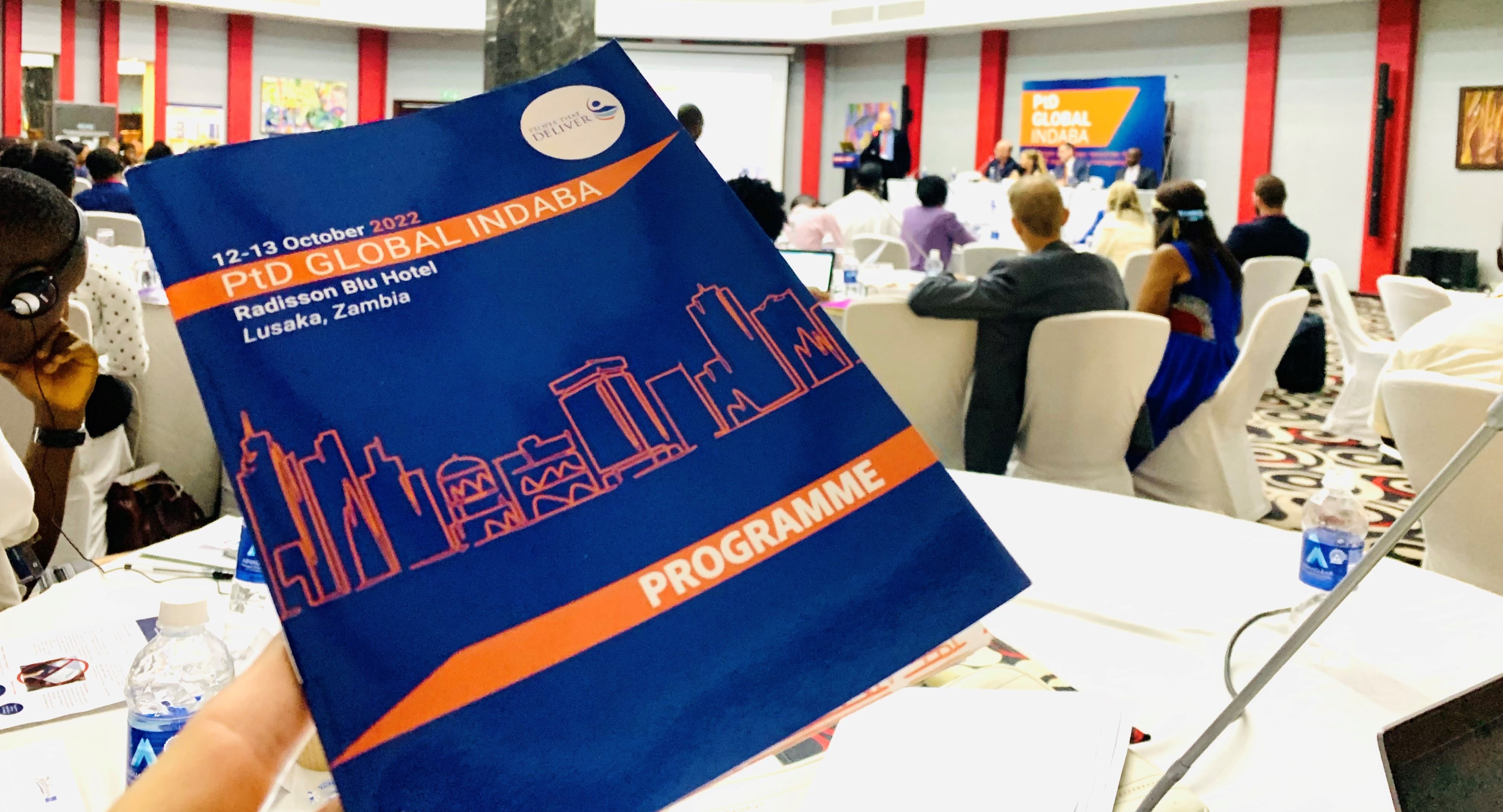“Today I’ve learnt something that I didn’t know,” said Zambia’s minister of health, Sylvia Masebo during a plenary panel discussion on day one of the inaugural PtD Global Indaba.
“Your experiences have really enhanced my understanding as a policy maker, so thank you both,” she added, addressing Anne-Maryse K’Habore from the Purchasing Centre for Generic Essential Drugs and Medical Consumables (CAMEG) in Burkina Faso, and Terry Ramadhani from the Kenya Medical Supplies Authority (KEMSA).
The discussion focused on enhancing political will and building an enabling environment for human resources (HR) for supply chain management (SCM) at country and regional level.
We’re here to learn
Learning from one another was the order of the day at the opening sessions of the inaugural PtD Global Indaba. One of the main objectives of the conference – the first in Africa to focus on HR for SCM – is to convene diverse health supply chain stakeholders for the purpose of exchanging experiences and offering solutions to mutual challenges.
Zambia’s minister of health, Sylvia Masebo was keen to point out that “human resources are the key to better provision of quality health care.”
When asked what lessons can be learned from the Zambia Medicines & Medical Supplies Agency (ZAMMSA), the health minister was clear about Zambia’s priority: to attract investment in the pharmaceutical area.
“We’re hoping to have more companies in the country producing medical commodities – right now over 95 percent of medical products are imported,” she said.
“We need to have the supply to be able to respond to the demand,” she added.
Professionalisation
Terry Ramadhani agreed and said investments in KEMSA had been hugely important in providing access to good quality and affordable healthcare in Kenya.
“In Kenya we’re ramping up efforts to upscale universal health coverage and professionalisation is key to this.” Professionalising the supply chain profession means transforming it into a recognised profession of the highest integrity.
Staff retention, she said, is part of KEMSA’s plan to progress to the next level and ensure every level of the population, including those in remote areas, receive the health care they require.
Anne-Maryse K’Habore agreed that staff retention is a crucial part of professionalisation – if supply chain personnel are motivated and enjoy good working conditions, they are more likely to remain in their positions. “It’s important to work on a career plan and giving personnel the resources and tools to progress,” she said.
She was also clear that professionalisation is a priority for Burkina Faso. “Our objective is to invest in capacity building and offer a viable career path for health supply chain professionals,” she said, pointing out that her country’s mission is to make quality medicines available to the whole population.
A large part of professionalisation concerns preparing staff to perform supply chain functions. “Training is vital,” she explained.
Focusing on the whole supply chain
Anne-Maryse K’Habore went on to say, “We must work to professionalise all the levels of human resources, all the way to the logisticians, developing their management and leadership skills.”
The minister of health agreed: “Trained pharmacists are key: they’re just as important as doctors and nurses. Every health facility must have a pharmacist or technologist, even in rural areas.”
Thanking the audience of over 250, Terry Ramadhani was unequivocal about the importance of the supply chain workforce. “The health service cannot function without all cadres in place,” she said.
Read more about the PtD Global Indaba and find out what’s on day two in the programme.

